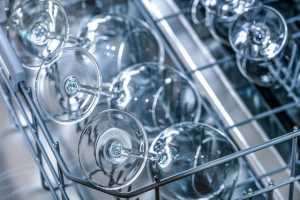In our usual day to day life, we even don’t notice how appliance work. They are designed to add minimum noise pollution level, let alone anything else. Ideally, you should press the button and get the job done effortlessly.
We want to think very little about regular appliance maintenance. In every appliance manual, you can find clear instructions about cleaning, but who has time for a clean cycle. This is how trouble begins…
Appliance Odor Buildup Control
Let’s talk today about appliance odor control. While the bad smell is not necessarily a sign of appliance breakage, but certainly it is an inconvenience, and in most cases can be prevented by regular cleaning and maintenance. While in most of the cases if your appliances develop odor it is just a matter of cleaning, certain signs are crucial to their proper functioning.
Burnt smell coming from your appliances.
We start with this problem as the most critical. Essentially, all appliances are electric devices and the integrity of wiring is essential, not only to their operation but is a critical safety concern. If you smell a burnt smell coming from any of your appliances during operation – it is important to shut it down right away.
Burnt wire smell is very distinctive and you will not mistake it for anything else. Appliances with compromised wiring have to be inspected and repaired by a certified appliance repair technician before you can plug them back and resume operation.
Burnt smell coming from the stove
Here we are speaking of the burnt smell that is not coming from the electrical part of the stove but from the heating elements. If you notice that you follow the cooking instructions and stick to the recommended temperature but still get burnt results there could be 4 possible reasons:
- The stove range temperature was not calibrated originally
- The heating element is not working properly
- The temperature sensor of the stove is dirty or malfunctioning
- One of the heating elements is burnt out
If you do suspect that the stove inner wiring is compromised – you should call the stove repair technician right away.
You should also remember to clean the oven and stove top on the regular basis. Do not leave the food buildup in the oven as it may, in fact, cause fire. Modern ovens have oven clean mode which essentially turns the buildup of food and grease into easy to wipe away ashes. As a safety precaution yo,u should never leave the stove unattended while the self-cleaning mode is on.
Odor control for Dishwashers.

While dishwashers do a lot of dirty work for you doing the boring task of washing your dishes, they do need cleaning in their turn. To serve you better. While you, sometimes, think, “Am I not doing the dishwasher’s job” while rinsing the dishes – it does help a lot to prevent grease and food leftover from building up on its inner parts, and as a result damage, it or contribute to the odor buildup.
Make it a habit to run a clean cycle from time to time or clean with vinegar: place a cup of white vinegar in a dishwasher-safe container on the top rack of the dishwasher. Run it through a hot-water cycle. This will wash away grease and grime and remove strong odors too.
Are you going away for some time? Run a cleaning cycle and leave the door open after
Odor in the front loading washing machine.
Frontloading washing machines are notorious for building up odor and growing mold on the rubber rim. When using it day – to day – do not forget to leave the tray and front door open after use. It also has to be located in a well-ventilated place.
To prevent mold growth and order buildup add 1/2 cup of liquid chlorine bleach to the detergent compartment of the dispenser and also fill the bleach dispenser compartment with chlorine bleach to the highest level. Set it to the normal cycle.
We do care about how you treat your appliances – it does ensure your life is comfortable and it matters to us.
If you do notice that your appliances do need professional service – please contact us.
RELATED ARTICLE: Appliance Cleaning Tips

